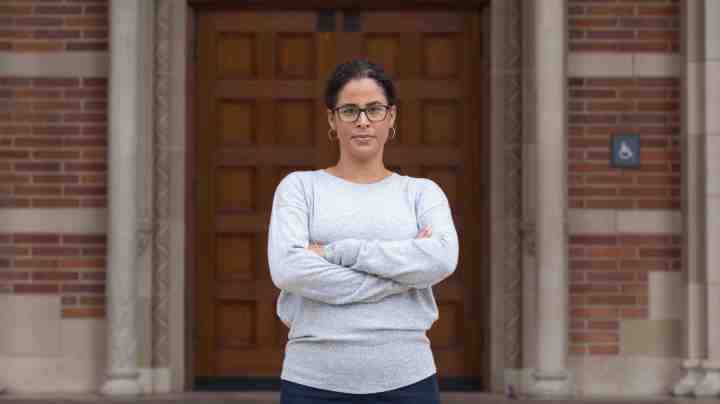Valeria Luiselli & Kelly Lytle Hernández Are Among This Year’s MacArthur Genius Grant Winners

Courtesy of John D. & Catherine T. MacArthur Foundation
Every year since the 1980s, the John D. and Catherine T. MacArthur Foundation has awarded no-strings-attached fellowships to a select group of people to support their missions that serve the greater good.
Today, it announced this year’s 26 fellows. Most names are ones you likely wouldn’t recognize (yet), but those chosen (you can’t apply for these, FYI) have proven to be worthy of the honor and committed to long-lasting change and evolution in their respective fields.
The array of professions represented are quite a colorful display, ranging from a cartoonist, a landscape artist, a marine biologist and more. A couple of noteworthy winners who are representing Latinxs include Valeria Luiselli and Kelly Lytle Hernández.
Luiselli, a Mexican author whose pen struts between the English and Spanish languages, and tackles subjects close to home (like migration) in a form of writing she calls documentary fiction, is amongst the “geniuses” in the 26-person list. Known for her novels like Lost Children Archive, she’s currently working on a book that deals with femicide in the U.S.-Mexico borderlands, with an emphasis on the brutality on the northern side. A nomad throughout her earlier years of life, Luiselli said, “I think that foreignness is a space I’ve learned to inhabit more than any other.”

Another fellow who made the cut is historian Kelly Lytle Hernández. The 45-year-old is an author and professor as well. Her work is described as “uncovering experiences and perspectives” from both sides of the U.S.-Mexico border. Forthright when it comes to her views on the current state of North America, Hernández proudly said her work “unmasks the group of white supremacy on U.S. carceral systems, from our jails to prisons to detention centers, insisting that true criminal justice reform must advance racial justice.”
Each of the two women, and the two dozen others who were granted the opportunity to further inform and develop their craft, are going to get $625,000, distributed throughout five years.
As the president of the foundation said in a statement, these extraordinary individuals “give us reason for hope, and they inspire us all to follow our own creative instincts.”